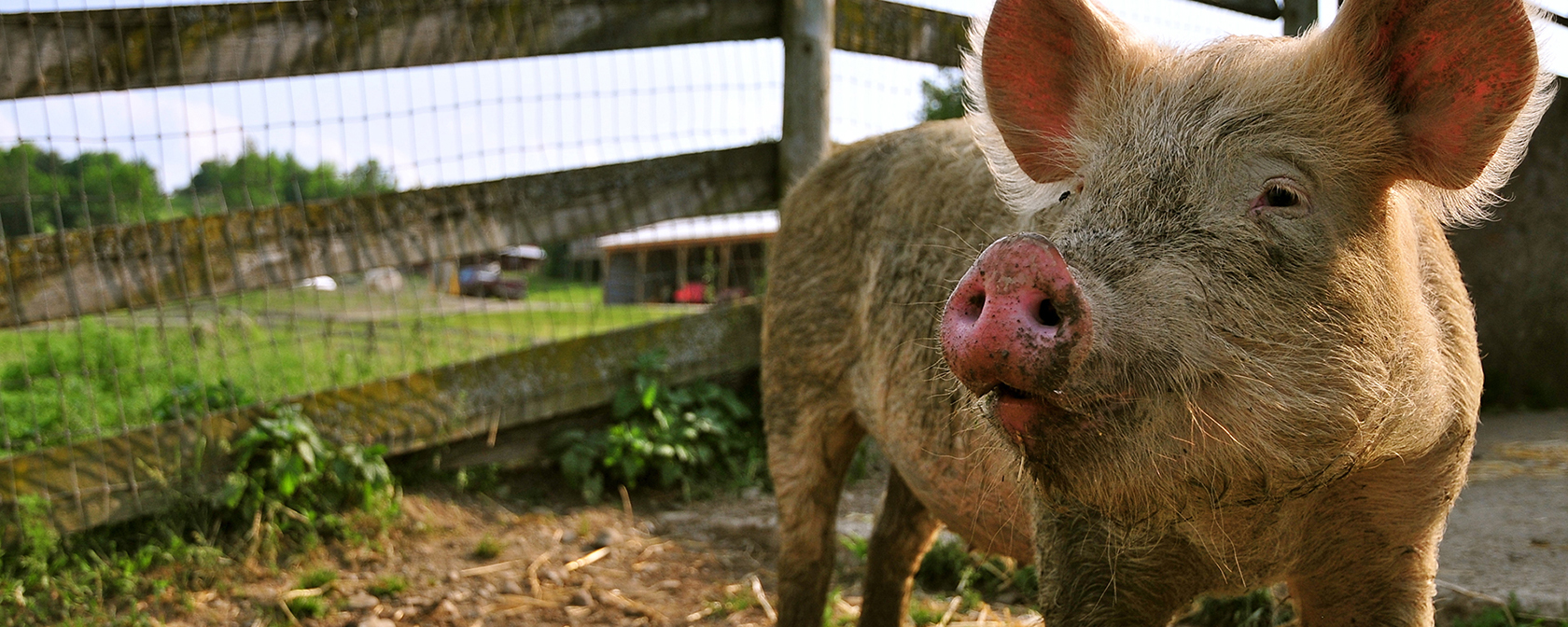By Sara Amundson and Kitty Block
In a historic move, the U.S. Department of Agriculture’s National Organic Program has issued the final Organic Livestock and Poultry Standards rule, a landmark federal regulation that strengthens and clarifies animal welfare standards. While the rule only covers animals raised in the National Organic Program, it will be the first time that producers who participate in the organic program will be required to honor specific fundamental welfare standards in their care, treatment and handling of animals under an overarching government program.
Among these standards is the first U.S. federal regulation on gestation crates. The standards include clarification that gestation and farrowing crates are prohibited in organic pork production. It also provides for minimum indoor and outdoor space requirements for organically raised birds. These measures respect a bedrock principle in animal welfare, that animals deserve and require adequate space to move and engage in natural behavior, and that such space is vital for animal wellbeing and health.
Addressing a longtime humane concern, the rule forbids the sale or slaughter of non-ambulatory animals and clarifies that producers may not purposefully withhold individual treatment for injured, diseased or sick animals to preserve their organic status.
The rule also bans inherently cruel practices including tail docking and face branding, de-beaking (or beak trimming) after 10 days of age and induced molting (a process using stress and starvation to shed feathers) for chickens, and mulesing of sheep, a painful process that involves slicing the animals’ flesh.
To provide these vital protections to animals as soon as possible, the USDA elected to implement the rule on a faster-tracked implementation timeline.
The finalization of this rule comes after a long-fought battle that included litigation initiated by the Humane Society of the United States after the Trump administration withdrew the previous, very similar organic standards finalized under the Obama administration. Luckily the battle has been won—and that was with the help of more than 57,000 of our supporters, and many thousands of others, who commented in favor of the proposed rule’s swift implementation. Now, because of that help, people can be assured that animals used to produce organic food are kept on farms with higher animal welfare standards. And farmers and producers seeking to uphold and maintain such standards on animal welfare will be able to align themselves with people who want their purchases to mean something.
Today, the USDA, under the leadership of Secretary Vilsack, has answered the American public’s call for stronger animal welfare practices in organic farming. This is a triumph in the fight for better treatment for farm animals. We have treated the organics rule as a priority throughout the highs and lows of the last several years in public policy debate over farm animal welfare, and we have defended it ardently. We will remain vigilant in our support for this standard and take pride in knowing this: Americans have overwhelming demonstrated through their advocacy that they want a meaningful organic label to allow them to easily distinguish and purchase products that better match their values. And now Americans can do so, because now they have one.
Kitty Block is CEO of the Humane Society of the United States.




